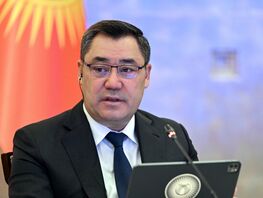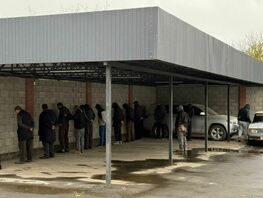The first Kyrgyz-French forum on investment and cooperation in healthcare was held in Paris. The Ministry of Health’s press center reported.
According to the press center, the forum was the key event of the Days of Cooperation between French and Kyrgyz hospitals and brought together representatives of leading French companies, research institutes, medical and technology enterprises, investors, and international organizations.
The event was opened by Emile Jockey, General Delegate of the French Healthcare Association, noting the growing interest of the French side in developing long-term cooperation with the Kyrgyz Republic in the fields of medicine, digital technology, and pharmaceuticals.
At the meeting, Erkin Checheybaev, Minister of Health of Kyrgyzstan, presented key elements of the national healthcare modernization program, including the implementation of the presidential decree on the construction of a new medical town—a modern, high-tech cluster uniting leading national medical institutions.
The project envisions the creation of infrastructure covering approximately 300,000 square meters and more than 3,200 beds on a site of nearly 100 hectares.
The future complex will include treatment, diagnostic, educational, and research facilities, and will meet high standards of environmental friendliness, energy efficiency, and comfort for patients and medical staff.
The minister invited French partners to participate in the project, noting that the potential for cooperation encompasses engineering, architectural, technological, and medical solutions, as well as joint scientific and educational initiatives.
He emphasized that the Kyrgyz Republic is interested in attracting foreign partners to the development of digital healthcare solutions, telemedicine, pharmaceutical and medical device production, the implementation of electronic medical systems, and the exchange of experience in creating modern medical clusters.
Particular attention is paid to the use of artificial intelligence in medicine, where France holds a leading position in Europe. Erkin Checheybaev noted that technologies that until recently seemed part of the future are now becoming practical tools for diagnostics, early disease detection, remote monitoring, and improving the effectiveness of medical care in remote regions.
The new medical town will be built in Kok-Zhar residential area.






